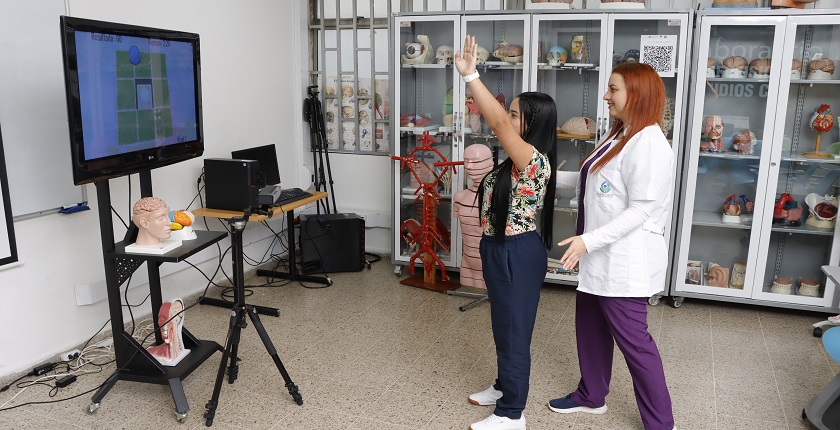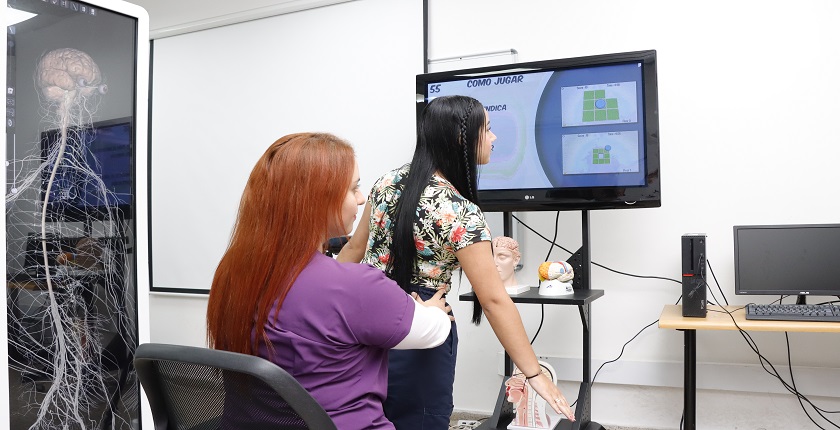Blog
Research and technology at the service of the community
- 1 diciembre, 2023

The Physiotherapy program of the María Cano University Foundation executes the research project titled “Effectiveness of a physiotherapy intervention with Doctor Kinetic in children with cerebral palsy in Medellín and Cali, pilot study”, which aims to evaluate the effectiveness of a physiotherapy intervention with the Doctor Kinetic software in children with cerebral palsy initially in the city of Medellín.
Doctor Kinetic software is a device that uses Kinect motion sensor technology to offer effective individual rehabilitation options, created in the Netherlands by Olszewski and Sokolowski calling it a functional training system with gamification and virtual reality designed for use in different rehabilitation processes specifically under the guidance of a physiotherapist, especially in the area of neurorehabilitation for both the child and adult population, through implemented play activities and where each session generates a detailed movement report in order to facilitate the monitoring of their progress through the issuance of results in time, scores and thus encouraging the improvement of their motor abilities (Rehastar, 2022); However, there is currently no research with this virtual reality device.
Nowadays, there are various investigations that demonstrate effectiveness when using virtual reality in physiotherapeutic approaches and specifically in neurorehabilitation in children with cerebral palsy based on the principle of motor learning; Thus, among the most used equipment in virtual reality are the PlayStation, Nintendo, Wii, Wii Fit, Xbox and Kinect. In Colombia, the implementation of this type of technology equipment in health processes still presents an exploratory field in research, since options such as virtual reality are not entirely clear as ways to pay attention to the expectations placed on people who present disability; In this way, the implementation of intervention options based on new technologies raises an important challenge for the Colombian health system, both in terms of costs and training of human talent in health (Ministry of Social Protection, 2015).
As a result of the above, this research project has been proposed through a quasi-experimental study using the outcome measures of gross motor function with the Gross Motor Function Measure (GMFM)- 66 scale, balance with the Pediatric Balance Scale. (PBS), the functionality of the upper extremity with the Quality of Upper Extremity Skills Test (QUEST) scale and participation and environmental factors using the Participation and Environment Measure – Children and Youth (PEM-CY) scale.
It is expected that in the next year we will be able to count on these promising results regarding this technological application and thus be able to make it known in the academic community in general and above all to impact the physiotherapeutic neurorehabilitation processes for the care of children with cerebral palsy. .
#MásMaríaCano

